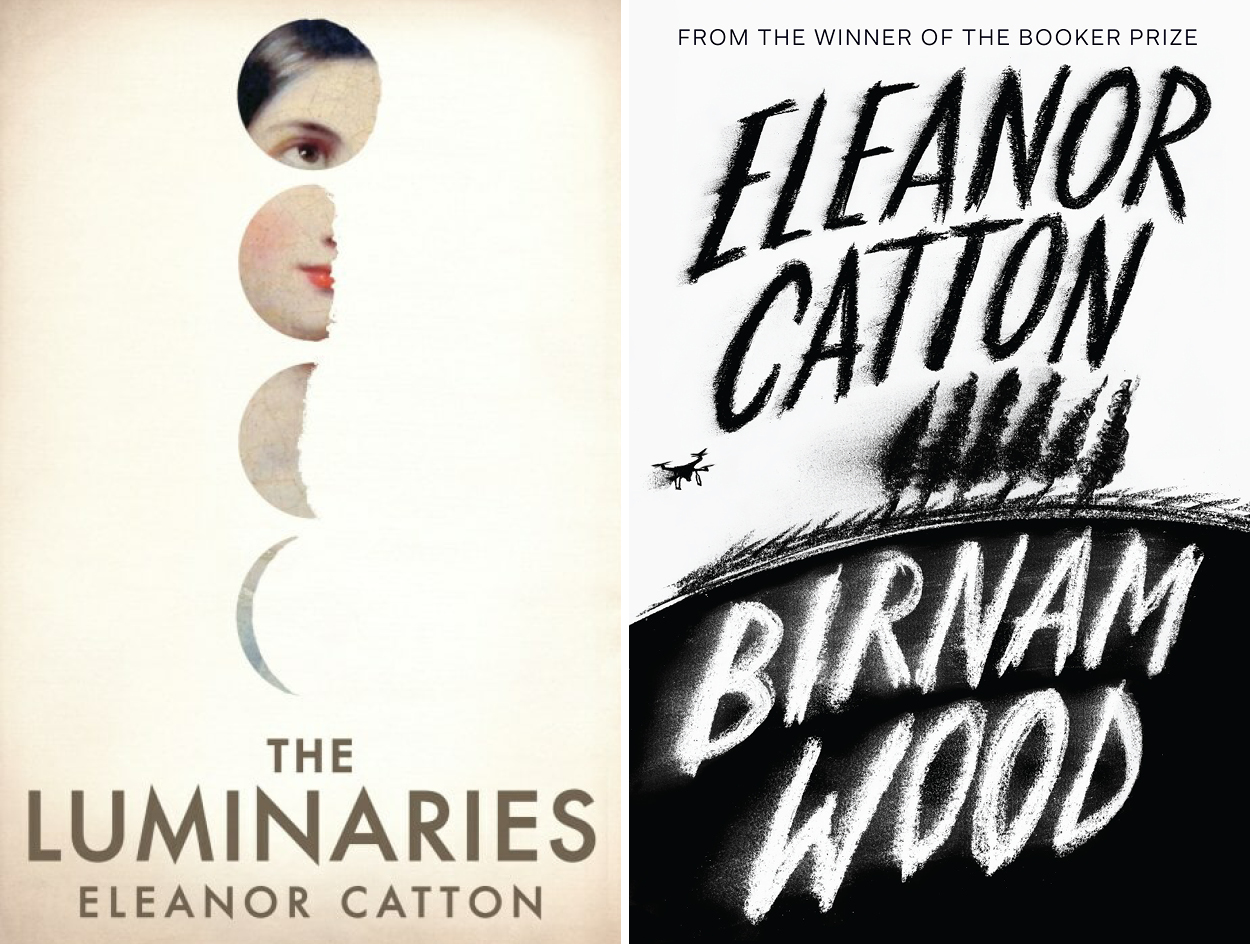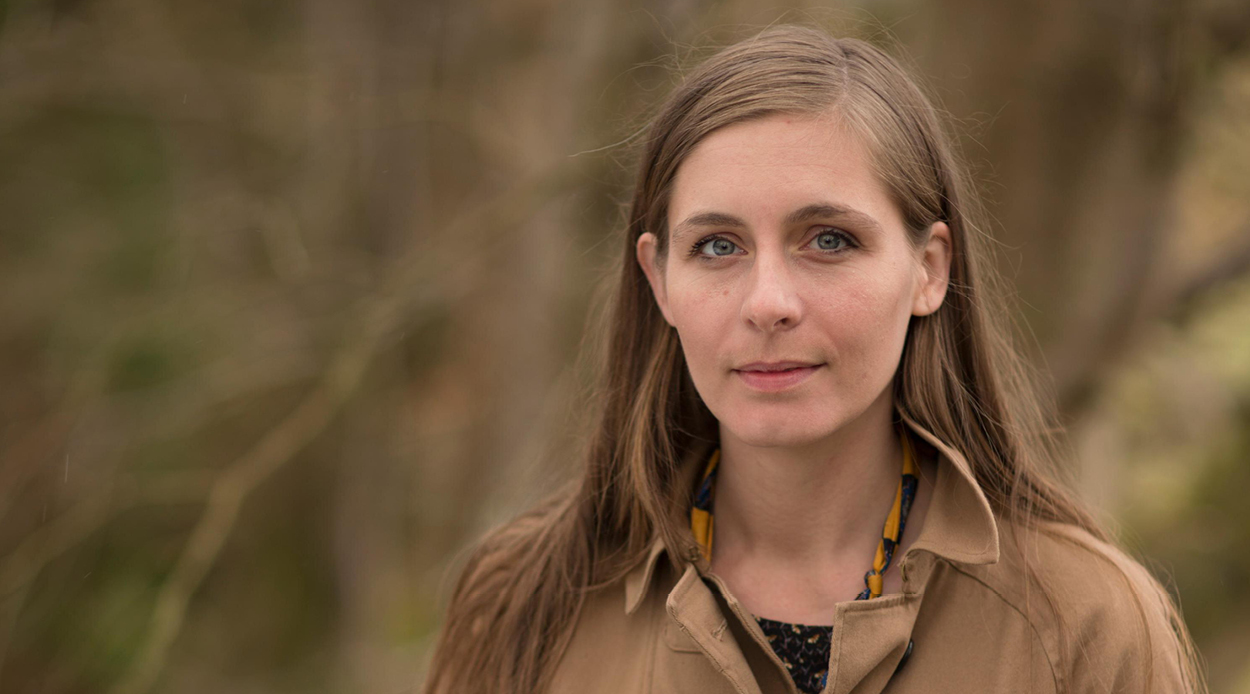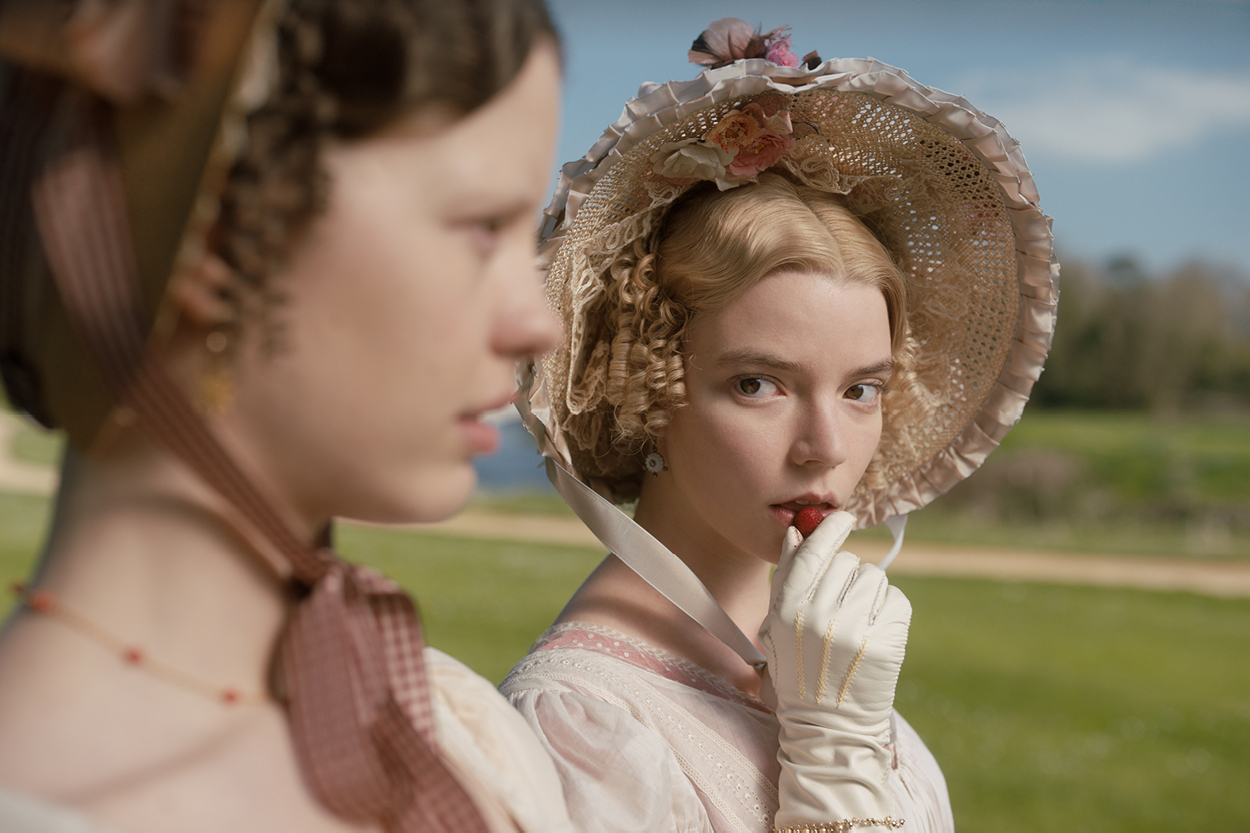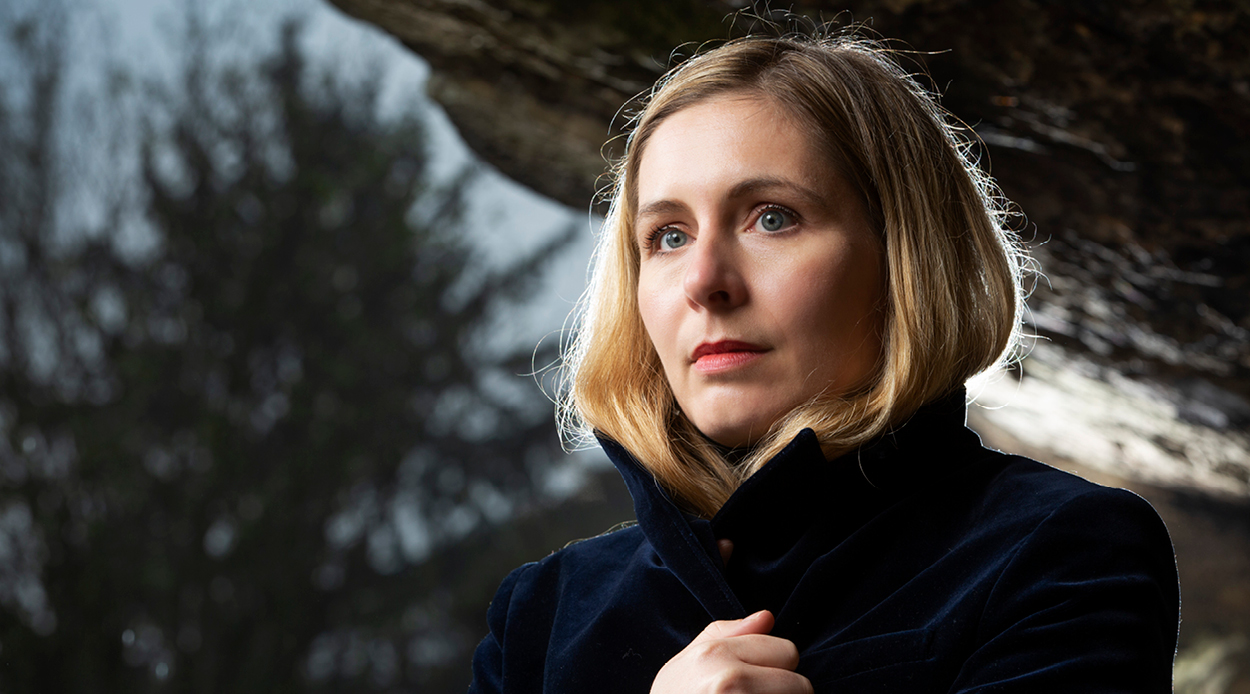A decade in the making, esteemed New Zealand author Eleanor Catton has finally released Birnam Wood, the much-anticipated follow-up to her Booker Prize-winning The Luminaries, a famously lengthy but brilliant read. Having returned home for an appearance at the Auckland Writers Festival, we sat down with the lauded writer to discuss her craft, the pressures she felt for her third release, and how remaining firm in her ideals is perhaps her most tremendous talent of all.
The first thing that strikes me about Eleanor Catton is her humility. For anyone, not least a writer, speaking to a Booker Prize-winning author on her latest work is anxiety-inducing, especially when the book is one that fans around the world have waited close to a decade for. On this, it should be said that the pressure of trying to top such critical acclaim isn’t easily accomplished, nor is it an imaginable feat for most. Yet within the first few pages of Birnam Wood, it is evident that Catton has taken this in her stride.
If you have not yet acquainted yourself with the novel, it delves into the world of a guerrilla gardening group known as Birnam Wood (a Macbeth reference), whose members covertly plant crops in forgotten corners of society. Their founder, Mira, discovers an abandoned farm after a landslide and seizes it as an opportunity for their long-term success, only to encounter a formidable obstacle in the form of an American billionaire Robert Lemoine, who supposedly seeks to construct his end-of-times bunker on the same land. The result is a seriously gripping tale that intimately explores themes of trust, ideology and the primal human urge to ensure our own survival.
Calm and candid in her explanation of the book’s ideals, Catton cements her status as someone who is incredibly thoughtful and inquisitive about the world around her. She is never quick to jump to an answer, always considering exactly what she wants to say before speaking. This is perhaps symbolic of her greater craft; she tells me that regardless of the project, one of the first things she will always sit down to do is a wealth of research. In essence, to make great writing, she immerses herself in the work of others. The idea of this is humbling; most of us live with the belief that the words of writers seemingly flow onto the page from a place of divine inspiration. But as Catton shares, her take on the process couldn’t be more meticulous or planned.

The grittier parts of our conversation aren’t around the technicalities of her work, however. Instead, we speak to ideas of success and determination and how one rises to a challenge they never really signed up to face. In Catton’s case, the challenge of penning the next novel off the back of such a successful predecessor. She tells me she actually enjoyed the pressure of it. The truth is, she is fascinating, her tenacity and almost intimidating intelligence underlying her gentle and cautious manner. In a sense, her story is about this challenge, and becoming more certain of herself in that. It’s about having the ability to listen, respond to her audiences, and evolve her craft with time. And to remain loyal to her authentic voice, which isn’t easy.
Catton isn’t one to stray from making damning statements, either (striking a familiar chord with those who can remember her previous successes). After all, Birnam Wood is a hugely political novel — but not in the agenda-setting manner one might expect. Instead, it argues the case that everything in life is political, and that, like it or not, all the decisions we make are political in one way or another. “I didn’t want to write a book that advanced a particular point of view,” she justifies. The result is a social and political satire, offering obvious and necessary commentary on our current state of affairs. Catton describes these as “the dangers of self rationalisation, self blindness, those human problems that underlie any political position.” In a way, this would almost be hilarious (and at times, we shared a few laughs over my interpretation of certain characters), if only the outcome wasn’t so tragic.
“Having a great faith in human beings is necessary… Writing is just one of the ways we express ourselves. We learn, we imagine, we dream, and we show that we’re capable of change.”
“I knew that I wanted to write something that negotiates these contemporary questions of how we deal with this unforeseeable future suddenly rushing at us very fast.” The author explains her reasoning for Birnam Wood, although she finds it hard to trace its exact origin. “It’s always quite difficult to pinpoint the exact moment where an idea becomes reality because quite often it comes in the collisions between two different intentions or notions.” Birnam Wood’s characters, for those yet to read, are headstrong about their beliefs, with a kind of stubbornness that is sure to lead to their inevitable demise. She speaks about characters like they’re mutual friends we both have, laying the blame on Tony purely because his bullheadedness “pissed the collective off”. It really is a greater commentary on something that Catton describes as a growing concern of the last decade, especially with the exponential rise of social media. “This terrifying slide towards certainty,” she calls it. Suggesting it would undoubtedly be a good thing if we were to be more open and accepting of the views of others.
We also explore what it means to Catton to be a successful New Zealander while leaving her home country behind (she now permanently resides in the United Kingdom) and how her lineage got her to where she is. But also, how in being removed from it, she can see the story more clearly, both on and off the page. She encourages readers to think about what’s been going on in our country when it comes to the battle between conservation and capitalism. After all, she says, New Zealand occupies a very particular space in people’s minds. Even if they never visit, or never intend to, knowing that countries like ours exist in the world offers a strange sense of solace that would be rare to find elsewhere. “Wilderness of the mind”, Catton calls it — a quote imparted by her uncle, a park ranger in America, where the landscape (environmentally and politically) is vastly different. She tells me how audiences overseas are surprised to learn that New Zealand isn’t entirely the ‘clean, green’ nation that our tourism slogans project. She tells me how surprised and how dismayed people are, that things like mining on national parks and offering billionaires citizenship to build bunkers have ever been on the table. “In a lot of ways, New Zealand occupies this space in the global imagination that is really important to think of as beautiful and benign and preserved and pristine, and all these staggering adjectives.” She tells me how people recoil when they learn about the states of our rivers and lakes, and our government being so welcoming to the influence (and money) of foreign billionaires, much akin to Birnam Wood’s deplorable antagonist. “That’s a form of complicity in global injustice and environmental degradation that New Zealand has been going at very enthusiastically for quite a long time,” she says, and I can’t say that I disagree.

Much of Catton’s story, right now, is about rising to the challenge when it feels like, to some extent the world wants you to fail. The author and I don’t talk about Tall Poppy Syndrome explicitly, but it hangs in the air of our conversation (a subject that often arises when discussing Kiwis who have achieved considerable success). Instead, she tells me of the joy she found in the post-award challenge. How she had used the last decade since the Booker (of which she was the youngest winner ever, at 28 — the very age I turn next month) to lean into a greater curiosity of the technical craft and the criticism it sometimes brought. This next book was about something very different; it was about engaging the reader. “I decided early on that I wanted this to be a book for the readers and not for the critical establishment,” she explains. “I wanted a book that was fun, unashamedly genre, with men in SUVs and guns, and all the trappings of the thriller.” Likely an emotional response, she believes, to feeling unmoored by how amazing the acknowledgement of her Booker-winning debut was, but also how extreme; to go from relative anonymity to being read around the world. “It’s endlessly interesting as a writer to see your book travel and talk to people in different cultures,” she says. “But at the same time, it made my head spin. I found it very alienating.”
It really needs to be said; this latest book deserves the notoriety it is receiving. To me, a fervent reader, the execution felt like perfect harmony between technical excellence and page-turning material, and it made sense that her process doesn’t begin with pen and paper but with screeds of research and that initial seed of truth, the idea that she hopes to impart on the reader. It’s a rarity, but in this instance, Catton knew the title of this work from inception and she always knew the outcome of the book too. Anyone familiar with Macbeth will see the similarities; “It was always taught that Macbeth was a play about ambition,” she explains. “But when I reread it, I thought, it’s not about ambition at all. It’s a story about how dangerous it can be to think the future is something that is fixed.” From here, the notion of satire and the seed of truth seemed to flourish of its own accord. “I’ve come to have great faith in the structural truth of dramatic action,” she explains. “The fact that stories need to escalate as they go along, I don’t think that’s accident or convention. It says something that’s very true about human nature and about the way that actions and consequences work.” To achieve the desired result, she believes writers need to approach the form with enough faith, and it will end up getting at something accessible to the reader because it’s fundamentally true. And in this instance, readers are left probing their own preconceptions of action and character. “You’re not what you say you are, you are what you do,” she imparts. That is the crux of her latest work.
Her ability to translate these kinds of grandiose ideas and concepts onto the page in innovative and enrapturing ways culminates in the kind of work most writers aim to create at least once in their career. A book that keeps the reader up past midnight and into the wee hours, desperate to discover what happens on the next page. To do this in Birnam Wood, among many other technical devices, Catton abolished the idea of chapters and instead only presented parts, which meant there were only two natural breaks in the text. I found it somewhat like theatre, which she explains to me as another nod to the book’s initial Shakespearean inspiration.
“I decided early on that I wanted this to be a book for the readers and not for the critical establishment,” she explains… “It’s endlessly interesting as a writer to see your book travel and talk to people in different cultures, but at the same time, it made my head spin. I found it very alienating.”
Recently, Catton was named one of literary magazine Granta’s Best Young British Novelists, a title that we’re desperate to contest, always wanting to lay claim to her as our own. Having lived in Cambridge, England since 2019 (her husband, poet Steven Toussaint began his PhD there pre-Covid), for Catton, the antipodes offers endless inspiration. Now, she explains, as she is delving more into the screenwriting realm, having access to London’s rich theatrical world on her doorstep has made the process so much more robust and fulfilling. It’s quite different to writing a book, as one could imagine, where in writing for the screen, Catton describes herself as “a gun for hire”. (A definite departure from the more self-indulgent process of novels.) It also brings the idea of ownership into play, as screenwriting doesn’t offer the same degree of accolade as the medium on which she built her reputation. “I’ve found that it’s loosened me up as a fiction writer,” she tells me. “I’ve been able to think in more broad strokes, especially in terms of character arcs and shapes a bit more.” To a degree, this influenced Birnam Wood, although the complexities of the characters and overlapping themes would be difficult to translate to the screen. That said, it’s not something that she rules out either.
For Catton, her life now exists on both the screen and page. Recently having penned the screenplay for Emma (directed by Autumn de Wilde and starring Anya Taylor Joy), a piece that she explains was her most revisited (purely because of the endless premieres and previews — the author makes a point not to re-read her work unless she has to), it is evident that Catton’s tremendous talent transcends the literary realm in which she got her start.

Although Birnam Wood is still fresh, I, like many, am eager to know what notch the writer will be adding to her belt next. A few films, she tells me, are in different stages of development — some of them hailing from a pre-Covid era; although the details that she can share are hazy. “I still can’t talk about them, but I feel they’ve been part of my life for a long time now.” Familiar with the follow-through, she is already working on her next novel, a further foray into thriller territory, more psychological than satirical. (“You have to deliver. You can’t say that something’s a thriller and not make it thrilling.”) But we shouldn’t expect to see it on shelves anytime soon. If I’ve learned only one thing, it is that Catton is nothing if not meticulous. Her processes are well-versed, where research exists as the axis of her craft as she continues to build on her already impressive legacy (although she finds the notion of a legacy difficult to grapple with). “Now that it [Birnam Wood] is my third book, I can start seeing points of commonality, and I can start tracing my own preoccupations in a way that’s interesting and surprising to me,” Catton offers. Each novel, although unrelated, feels like an extension of the last, in a way that she uses her discerning eye to continuously respond to and evolve her craft, and the world around her, creating the kind of writing that endures.
As the two of us share tales, and our very real fears for what at times feels like a dying world, where things like art and literature may seem frivolous, Catton reminds me that not only are they essential, but that they address our very being. “It’s what makes us human,” she suggests. “We have this incredible ability as human beings to imagine and to project ourselves into situations that we’ve invented, or that we’ve imagined, or that have existed, but we’re not physically present. It’s only through doing that, that we’ve become such an interesting and sophisticated global civilisation. I think to continue to do that is critical, because if we forget our humanity, then we will forget why the earth is worth saving.” It, of course, goes back to her inherent belief that everything is political, and when she phrases it in such a way, the notion makes even more sense than before. “Having a great faith in human beings is necessary,” she goes on to explain. “Writing is just one of the ways we express ourselves. We learn, we imagine, we dream, and we show that we’re capable of change.” And with that, it strikes me that perhaps our future is less ill-fated than I thought.








